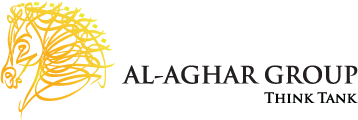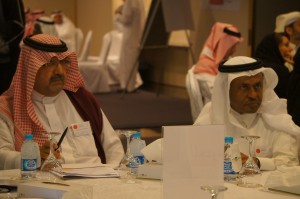Based on the importance of activating the role played by the knowledge family by virtue of its being the core of the knowledge family system, and in view of the importance of this issue and the shortage of relevant studies in the Arab and Islamic worlds, Al-Aghar Group has undertaken an in-depth study over the years 2011 and 2012 with the aim of analyzing the obstacles and motivations which affect the rearing skills of Saudi families as well as efficient self-education of parents to improve these skills. The study was conducted in collaboration among Al-Aghar Group and several other parties, including the National Commercial Bank as supporting partner, the King Abdulaziz and his Companions’ Foundation for Giftedness and Creativity (Mawhiba) and King Abdulaziz City for Science and Technology as strategic partners and King Saud University and the Business Administration College as knowledge partners.
As an extension of the arduous efforts exerted throughout the study, the “Knowledge Family” workshop was held under the kind patronage of His Highness Prince Faisal Bin Abdullah Bin Mohammad Al-Saud, the Minister of Education and Chairman of the Steering Committee at Al-Aghar Group. The workshop had the purpose of presenting the findings of the study and issuing recommendations , it was held on 20 December 2012 at the seat of the National Commercial Bank in Jeddah. Nearly 50 experts and specialists in the fields of education, family and psychology, and an elite of concerned agencies and potential decision makers took part in the workshop in the context of Al-Aghar’s strategy for transforming the Kingdom of Saudi Arabia into a knowledge society by the year 1444H.
MAIN TOPICS OF THE WORKSHOP:
- Presenting findings of the Knowledge Family research, including the following:
- The “Knowledge Family” term: since the term was non-existent, Al-Aghar Group has taken the lead in coining it and has defined it as follows: “Acquiring and bringing in knowledge of all that relates to the family and child rearing skills, interacting with knowledge to cope with contemporary changes in dealing with children, preparing them for work and supporting the knowledge society, and engaging with others to bring in knowledge and successful experiences”.
- Rationale of the study: the size of the segment consisted of nearly 800 Saudi families of all demographic classes, spanning all main areas in Jeddah. It has included males and females (50%50) in the age group of 20 to 50 years, with at least one child (aged at least three or more). Various quantitative and descriptive research methods were used, including (in-depth interviews, questionnaires, and day-to-day observation diaries). In relation to knowledge, the study found that the parenting prototype for parents is divided into four categories as follows:
- Category (a) 20% are knowledgeable and worried: avid for knowledge – a person who feels that he/she must learn about being a better parent and willing to learn. If I do not make this effort, I may not be able to bring out my potential and that of my child.
- Category (b) 5% – knowledgeable but not worried: they appreciate knowledge without effort. I believe that if I learn child rearing, this may be a good thing but I do not have time to make this effort.
- Category (c) 57% know it all: I am the source of knowledge. I do not need anyone teaching me how to be a better parent and to raise my children. I feel I know how to raise children in the best way.
- Category (d) 18% do not know and do not care: Knowledge is not important. A person who believes that children may be raised in all ease. They are being raised since ancient times. It is not necessary for us to be extremely stressed out over ways to bring them up and to overemphasize this issue.
- Preparing a list of the recommended steps for each category, using feedback and responses of the audience as indicators.
- Results of voting by the audience to determine the proposed category for interaction and to devise an integrated strategy for this category. The results were in favor of group (c) = 23 points (55% of voters).


